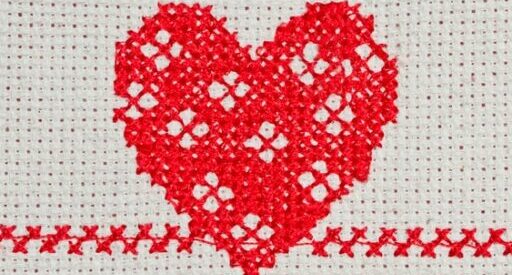Incarcerated Texas Women Transform Lives with Handmade Quilts for Foster Kids
In an inspiring initiative, inmates at the Texas Department of Criminal Justice William P. Hobby Unit have been using their time behind bars to create handmade quilts and pillowcases for children in the foster care system.
This unique program, called The Stitches of Love and Hope Quilting Program, gives comfort to these children and also offers inmates valuable skills and a sense of purpose.
This blog post takes a closer look at this heartwarming project and how it’s making a difference inside and outside prison walls.
Table of Contents
The Stitches of Love and Hope Quilting Program
The William P. Hobby Unit, in Marlin, Texas, is a women’s prison with over 1,300 inmates.
Among the different rehabilitation programs, The Stitches of Love and Hope Quilting Program stands out for its impact on both inmates and children.
Inmates in this program carefully pick out fabrics and stitch each design, knowing their work will bring comfort to kids in foster care.
It’s not just about sewing; it’s about learning, giving back, and finding real meaning in their days.
Skills and Rehabilitation
While the main goal is to comfort foster children, the quilting program also helps inmates with rehabilitation.
By joining the quilting group, inmates pick up skills like:
- Sewing and Design: They get hands-on experience with sewing and fabric design, which could help them land jobs later on.
- Attention to Detail: Quilting takes patience and precision, so they sharpen their focus with every stitch.
- Teamwork: Working together on these projects teaches communication and the basics of teamwork.
Emotional and Psychological Benefits
The program isn’t only about practical skills; it also brings emotional and psychological benefits:
- Sense of Purpose: Knowing their quilts and pillowcases will bring comfort to children gives inmates a sense of purpose.
- Therapeutic Value: Sewing can be surprisingly soothing, helping them manage stress and anxiety.
- Empathy and Compassion: Some inmates have personal experience with the foster care system, so giving back feels deeply meaningful.
Other Rehabilitation Programs at the William P. Hobby Unit
The quilting program is just one of several initiatives at the William P. Hobby Unit that focus on rehabilitation and skill-building.
The prison also has a print shop and several agricultural operations where inmates can work and learn trades they might use after release.
Print Shop
The print shop at the William P. Hobby Unit gives inmates a chance to learn printing techniques.
They can pick up skills like:
- Graphic Design: Basics of layout, typography, and graphic design are part of the training.
- Printing Techniques: They learn methods like screen printing and digital printing, which can come in handy in the job market.
Agricultural Operations
Agricultural programs let inmates get hands-on with farming and animal care.
They learn things like:
- Crop Cultivation: Planting, growing, and harvesting different crops is part of the day-to-day work.
- Animal Care: Inmates handle livestock—feeding, breeding, and keeping animals healthy.
Other Notable Programs in Texas Prisons
Other Texas prisons also run unique programs to help inmates build skills for life after prison.
For example:
Alan J. Polunsky Unit
The Alan J. Polunsky Unit has a box factory where inmates make cardboard boxes.
Through this, they learn:
- Manufacturing Skills: Inmates get the basics of assembly line work and quality control.
- Work Ethic: The routine helps build discipline and a strong work ethic.
Clements Unit
The Clements Unit in Amarillo, Texas, operates a shoe factory where inmates learn to make shoes from scratch.
They pick up:
- Shoe Making Skills: Training covers everything from cutting leather to putting the final shoe together.
- Entrepreneurial Skills: Inmates even get a taste of the business side—marketing and sales are part of the lessons.
Conclusion
The William P. Hobby Unit and other Texas prisons have started some interesting initiatives lately. Programs like The Stitches of Love and Hope Quilting Program teach inmates real skills.
These activities do more than fill time—they offer emotional and psychological support. Inmates get a chance to give back, which can spark a sense of purpose.
That’s got to help when it comes time to rejoin the outside world. If you’re curious and want more details, check out the original article.

